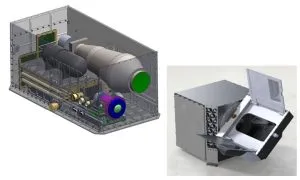The launch services company now adds Geost’s Optical Systems functionality to its portfolio. The payload systems enable space vehicles to detect, interpret, and respond to situational changes in real time.
The deal was completed for $275 million. The agreement comprises $125 million in cash and 3,057,588 shares of Rocket Lab common stock. This is with an additional potential earnout of up to $50 million tied to future revenue targets of Geost’s business.
“Being able to quickly build and deploy entire satellite systems is the cornerstone of future U.S. defense strategy, and with this acquisition, we’re accelerating the delivery of mission critical payloads that support U.S. national security projects,” said Rocket Lab founder and CEO, Sir Peter Beck.
“This acquisition strengthens our role in building the resilient, responsive space architecture envisioned under Golden Dome, combining Geost’s proven sensing technologies with Rocket Lab’s ability to scale fast, secure, and integrated space solutions.”
Dating from 2004, Geost’s EO/IR technologies support missile warning and tracking, tactical intelligence, surveillance, reconnaissance, Earth observation, and space domain awareness. Rocket Lab highlights these capabilities are critical to U.S. space assets operating in contested environments.
IP
The deal was first announced at the end of May. Rocket Lab will gain Geost’s manufacturing facilities, laboratories, intellectual property, and product inventory.
Geost itself will continue to operate in Arizona and Virginia. Rocket Lab’s headquarters are in Long Beach, California. It is originally a New Zealand company.
U.S. President Donald Trump first announced his plans for a “Golden Dome” in May 2025. The plan is for a shield to protect the United States (and Canada) from long-range missile threats.
Image: Geost
See also: Rocket Lab wins $14m satellite separation contracts

